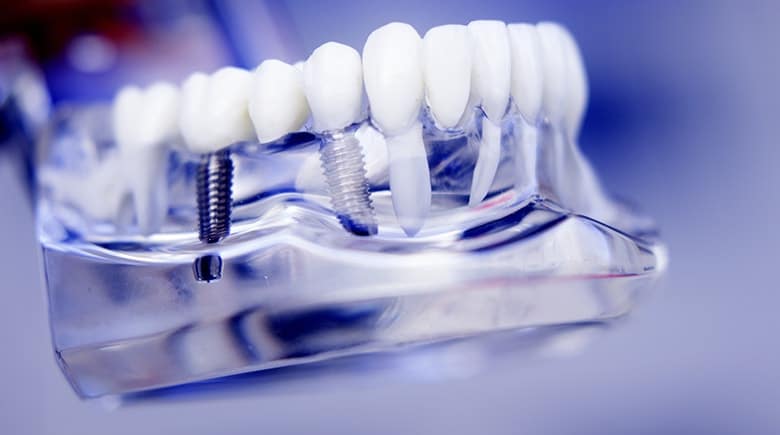Many people want to rely on dental insurance to help cover the cost of their treatment, but the truth is that dental insurance is often not a good deal. One of the problems is that it just doesn’t cover all the procedures you might want. Often, it doesn’t cover the procedures that you really need to get quality results. One example is dental implants. Many insurance plans don’t cover dental implants, which can be the best approach to replacing lost teeth. There is no good reason for this, as we’ll see if we look at the justifications insurance sometimes uses to deny coverage.

Dental Implants Aren’t Experimental
Insurance companies rightly deny coverage for treatments that are experimental. Unproven treatments could be a bad investment. They may help policyholders or they may just be a waste.
But this isn’t true of dental implants. Dental implants aren’t experimental at this point. They have been used for over 50 years. Millions of dental implants have been placed since then. There have been many studies of their safety, effectiveness, and longevity. When you look at the issue, there is simply no justification for describing dental implants as “experimental.”
Dental Implants Aren’t Just Cosmetic
Sometimes insurers try to deny coverage of treatment on the grounds that it’s cosmetic. In dentistry, this is a hard line to draw. Healthy teeth are beautiful teeth. Any restorative dentistry that’s done properly will look attractive.
With dental implants, the issue is the same. Dental implants can look beautiful, but that’s not all they do. Dental implants also improve the function of your teeth, and this can have far-ranging effects on your health.
Dental implants provide the same benefits as other tooth replacement options, such as helping remaining teeth stay in place, and restoring the wholeness of your smile. But dental implants do even more. They support themselves, so they don’t put your other teeth at risk. They stimulate the jawbone, so the bone is stronger and supports the gums. Dental implants also restore healthy chewing function, which helps you to maintain good nutrition and avoid problems related to poor chewing, such as digestive difficulties.
When you look at all the benefits, you see that dental implants aren’t just a luxury.
Insurance companies Want to Avoid the Cost
Once we’ve dismissed those false justifications for not covering implants, it’s easy to see that the real reason is simply that they don’t want to pay for them. Dental insurance companies are ultimately focused on remaining profitable, not necessarily on providing the best care for the people they insure. So whenever they can cut costs, they will do it–even if it means that some people aren’t getting the best care.
Dental implants are expensive up front. If you’re the person getting the implants, they are definitely worth it, though. The benefits of having the better bite function, the attractive smile, the long-term stability, and the overall improvement in your quality of life all make dental implants a great investment. In fact, implants can be less expensive over time than other restorations, such as dental bridges, which provide similar functionality, but don’t last as long.
However, to insurers, the initial cost is a good enough reason to not cover them. It creates a disproportion between your insurance premiums and your payouts, and that doesn’t make good business sense from their standpoint.
Once you learn what dental insurance doesn’t cover, it often makes good sense to get rid of insurance and just work with dentists directly. It’s not as expensive as you think, and it puts you in control of your dental care. That way you and your dentist can make the decisions based on what’s best for you, not what’s best for the insurance company.
If you want to learn more about getting dental implants in the Hilton Head area, please call (843) 706-2999 today for an appointment with an implant dentist at Beyond Exceptional Dentistry. We can work with your insurance company, if you want, but we also work directly with our patients to ensure they get the best possible care.




